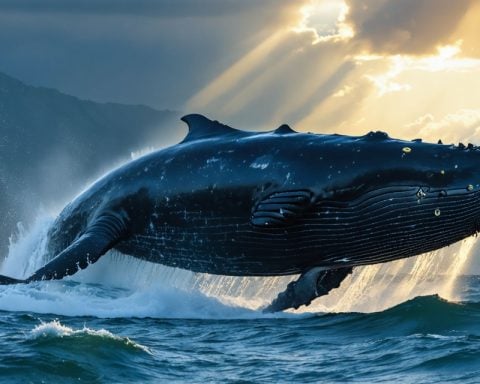Martyn Ware, the renowned musician behind Heaven 17, recently declined a lucrative opportunity for the band’s iconic track “Temptation” to feature in the highly anticipated Grand Theft Auto VI. The founding member of the influential synthpop group shared his thoughts on social media, revealing that he was approached with an offer amounting to $7,500 for perpetual rights to the song, a deal that he found unappealing.
In a candid message, Ware expressed his initial excitement over the prospect of earnings but quickly became disillusioned after viewing the terms. He identified the sum as a one-time payment that relinquished all future royalties related to the track. To highlight the gravity of his decision, he noted the game’s staggering projected revenue of $8.6 billion.
The artist felt that such an offer undervalued both his work and the potential of earning ongoing income from a game that is expected to reach millions of players worldwide. Further discussions ensued on social platforms, with other artists weighing in. Notably, Simon Raymonde of Cocteau Twins encouraged Ware to reconsider, pointing out the substantial potential exposure a big-name game like Grand Theft Auto could provide for his song.
Originally released in 1983, “Temptation” has remained a celebrated classic, known well beyond its initial success. As anticipation builds for Grand Theft Auto VI’s release, set for late 2025, the music industry continues to reflect on the balance between artistry and commercial value.
Martyn Ware’s decision to decline the offer for “Temptation” opens up discussions about the evolving relationship between music and gaming. The gaming industry is increasingly recognizing the value of music, often using popular tracks to enhance player experience and attract audiences. This scenario raises questions regarding copyright, artist rights, and the financial implications of licensing music for video games.
Key questions surrounding this topic include:
1. What factors should artists consider when licensing their music for video games?
– Artists should evaluate potential earnings, the long-term value of their music, exposure to new audiences, and the impact on their brand.
2. How do licensing deals typically differ between video games and other media?
– Video game licensing often aims for a one-time payment for perpetual rights, unlike film or television, where artists may negotiate for higher initial fees along with ongoing royalties.
3. What impact does music licensing have on an artist’s career and financial stability?
– It can provide significant income, but unfavorable deals can limit future earnings. Artists must weigh immediate financial benefits against potential long-term gains.
Key challenges and controversies associated with the topic include:
– Underpayment of artists: Many artists feel that offers for their music do not reflect the actual value their work brings to a project.
– Long-term ramifications of licensing: Accepting an offer that relinquishes future royalties can lead to financial losses, especially if the game becomes a blockbuster.
– Industry pressure to conform: Artists may face pressure from peers or industry norms to accept offers that may not be in their best interest.
Advantages of accepting music licensing deals for video games:
– Increased exposure: Features in popular games can introduce an artist’s work to a new, global audience.
– Immediate financial benefits: A sizable upfront payment can be beneficial for artists in need of immediate support.
Disadvantages:
– Loss of future earnings: Accepting a one-time payment can mean losing out on substantial income from royalties in a successful game.
– Potential brand risk: The association with a game’s content or themes may not always align with an artist’s image.
For further exploration of the implications of music in gaming and artist rights, consider these links:
Music Business Worldwide
The Verge
IndieWire



















